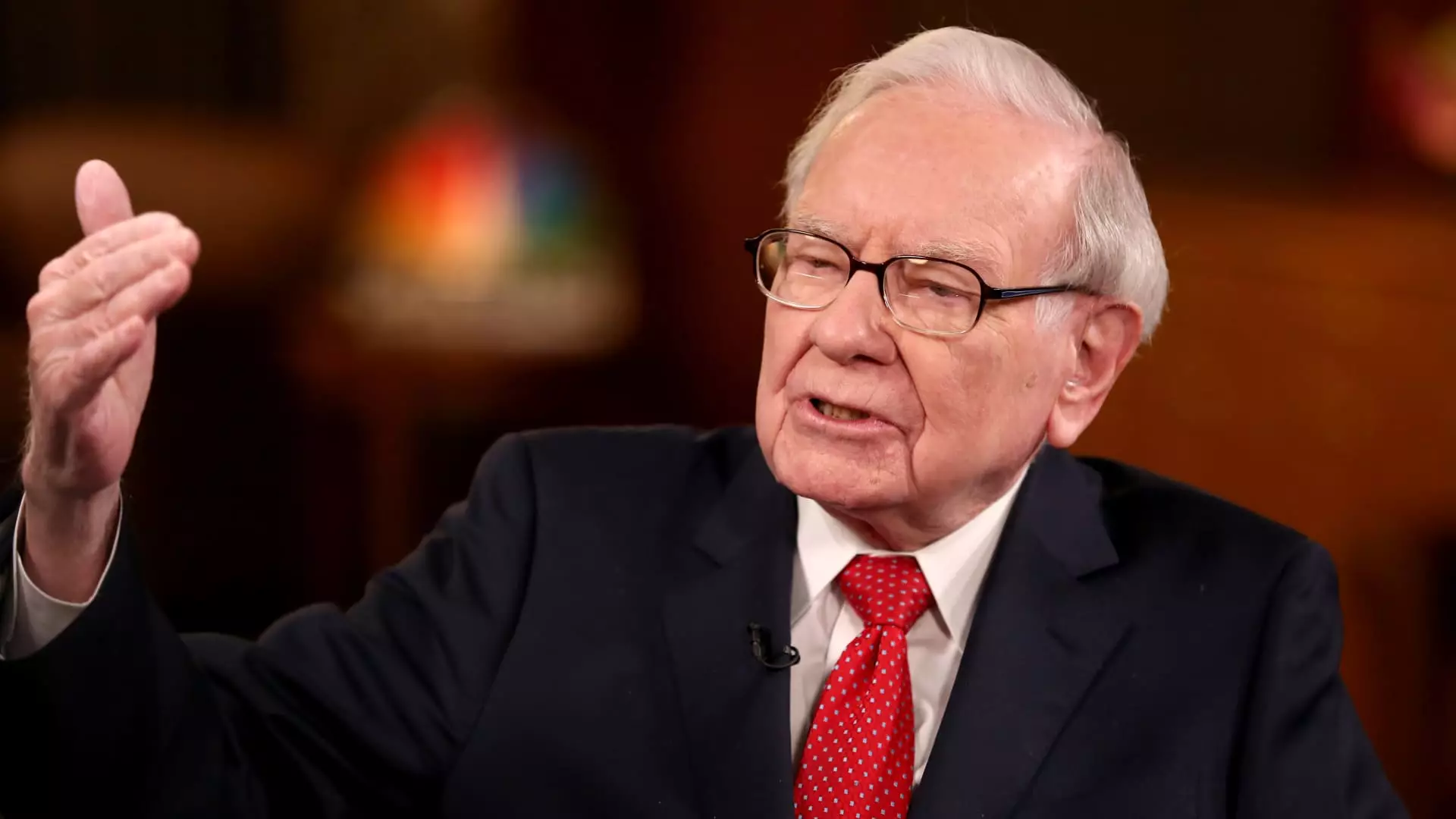In an age dominated by the rapid dissemination of misinformation, negotiating the intricate web of political narratives can feel like traversing a minefield. Recently, President Donald Trump shared a provocative fan-made video on his Truth Social account, attempting to draw a connection between his controversial market strategies and the views of billionaire investor Warren Buffett. Speculations of this nature raise significant red flags, primarily due to the potential for misleading narratives to shape public opinion. The video falsely claims that Trump is purposefully crashing the stock market to manipulate interest rates while presenting Buffett as a supporter of this maneuver. Such a claim, while alluring for media sensationalism, is devoid of factual basis and undermines the essence of responsible economic discourse.
The Pitfalls of Social Media Narratives
The reliance on social media for economic analysis is fraught with danger. The narrative shared by Trump invokes the questionable authority of Buffett, which leads many to conflate entertainment with credible business insights. In times of economic uncertainty, relying on sensationalized social media commentary can distort public understanding of vital issues like interest rates and stock market fluctuations. When an established figure like Buffett feels compelled to deny the veracity of statements attributed to him, we witness the profound implications of falsehoods proliferated online. Buffett’s company Berkshire Hathaway, in response, categorically rejected the claims, emphasizing that such misinformation could have detrimental effects not only on their reputation but also on broader economic literacy.
A Subtle Reflection on Trump’s Economic Policies
Buffett has long positioned himself against tariffs, branding them as a form of economic conflict. His cautious skepticism towards Trump’s strategies reflects a deeper concern for responsible governance. Trump’s aggressive trade policies, which Buffett has previously criticized, can lead to substantial market ramifications that ripple across the global economy. Although Trump’s supporters may argue that economic fluctuations are part of a grand strategy, such maneuvering often backfires, creating uncertainty instead of stability. The potential consequences of such volatility render these claims not just misleading, but dangerous in the context of long-term economic health.
The Dangers of Echo Chambers
The episode underscores a troubling aspect of modern media: echo chambers that reinforce narrow viewpoints, often at the expense of rational debate. The viral spread of the video on platforms like X (formerly Twitter) and its portrayal of fabricated alliances diminish the possibility of genuine discourse about economic policies. People seem more keen on perpetuating sensational narratives than seeking rigorous analysis of the economical implications. This paves the way for a dangerous culture where popularity eclipses truth, leaving informed citizens perplexed and misled.
Buffett’s Economic Philosophy vs. Trump’s Political Theatre
Warren Buffett’s economic philosophy is grounded in long-term value, sustainable growth, and transparent investing — qualities that sharply contrast with the impulsive political theater that Trump often rehearses. Buffett’s emphasis on free trade as a mechanism for global prosperity is not merely academic; it is a call for understanding the interconnected nature of today’s economy. In contrast, Trump’s policies hint at a short-term focus, prioritizing immediate political gains over accountability and long-term economic stability. It is critical to separate sound economic reasoning from politically charged rhetoric, which is often more about optics than genuinely caring for the nation’s fiscal wellbeing.
The Imperative for Informed Discussion
As citizens grapple with bewildering narratives stemming from authoritative figures, it is essential that we champion informed discussions over sensationalism. The role of media should not be to amplify partisan claims but to facilitate critical examination of economic issues that affect us all. Misinformation only serves to polarize opinions and clouds the judgment of individuals who rely on social media as their primary source of information. Therefore, it becomes the responsibility of those engaged in economic discourse to uphold a standard of integrity that fosters understanding and encourages thoughtful analysis. The stakes are high; the future of economic policy and public dialogue hangs in the balance, and we must remain vigilant against the seductive lure of distorted realities.


Leave a Reply